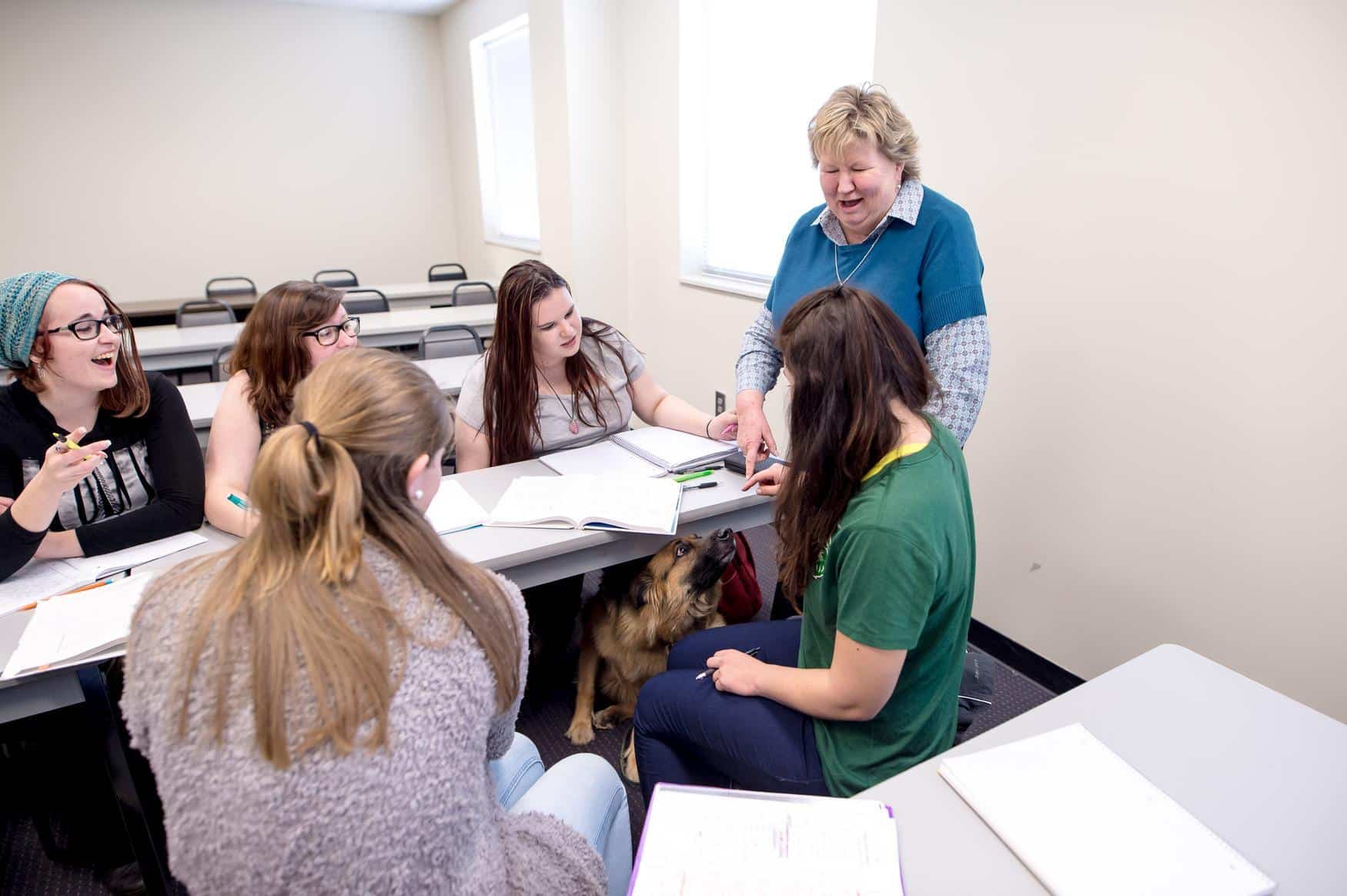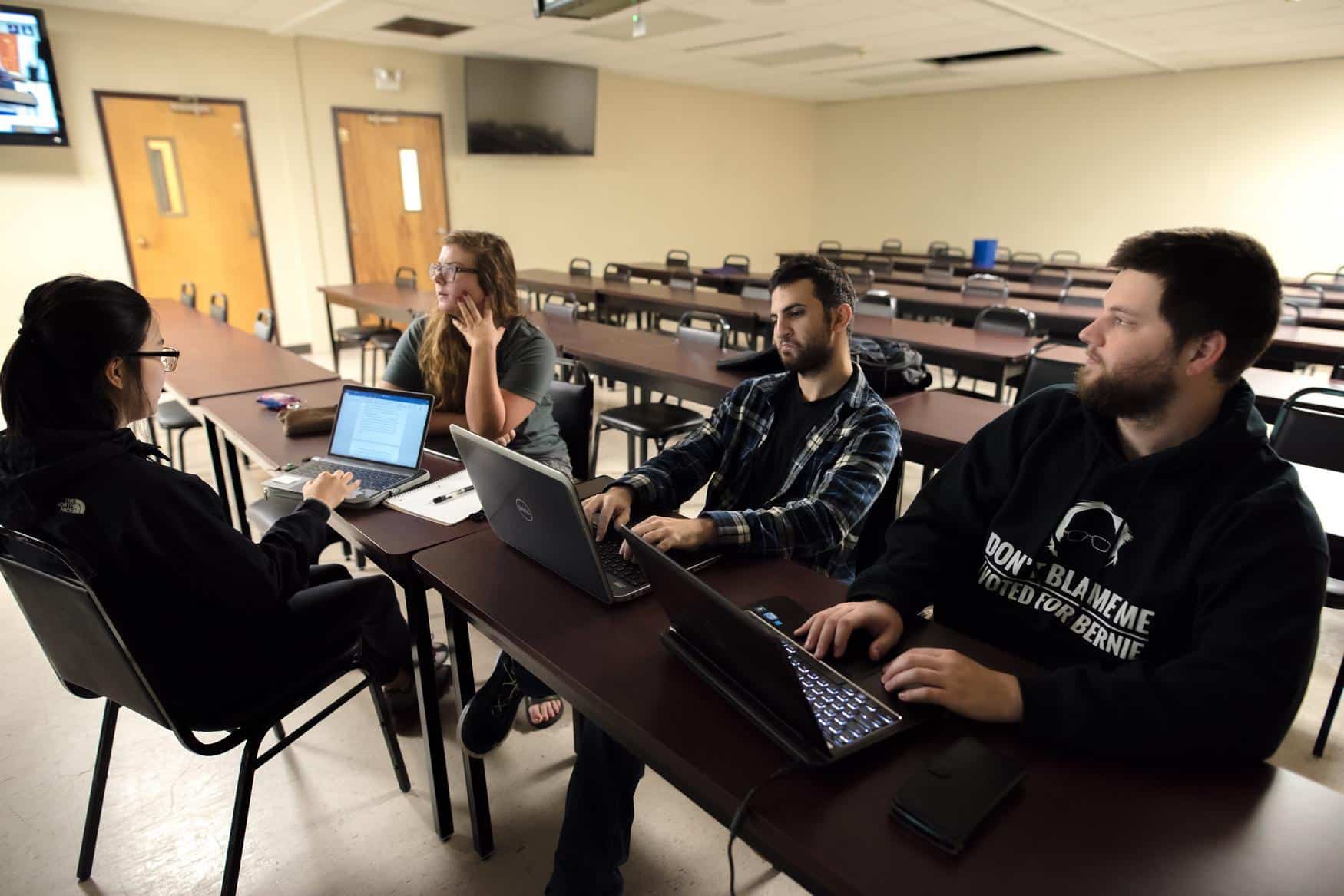Psychology


Why Pursue Psychology?
Do you ever wonder why people behave the way they do? Are you fascinated by relationships and how people react in different situations? Psychology is the science behind understanding all these aspects. And people who understand psychology – and can think, analyze, and express themselves because of that understanding – are always valued by employers and can make their mark on society. Psychology is also a great starting point for more advanced degrees, such as law and medicine.
At Piedmont University, our psychology program will teach you the science of human behavior and mental processes. You will learn to account for environmental, experiential, and physiological factors in your studies. We will also help you cultivate analytical and interpersonal skills. The results will prepare you for a career in a wide range of fields – as well as provide a firm foundation for further study.
A unique offering of Piedmont’s psychology program is a 3-course research training track that culminates in an independent research project. Piedmont’s size allows faculty to work closely with each individual student on their selected track. This component is not only an excellent opportunity for students to dive deeper into their research topic of interest, but also excellent preparation for graduate school.




How a Piedmont Psychology Degree Helps You
- Gain an understanding that will serve as excellent preparation for leadership in a professional career.
- Prepare for a successful career in various areas of counseling and social work.
- Learn how to understand relationships and understand why people think and react the way they do – through classroom, research, and internship opportunities.
- Lay the groundwork for an advanced degree such as law or medicine.
Career Opportunities
Psychology training prepares students for careers in traditional fields like counseling and social work, as well as specialized fields, such as health psychology, sports psychology, consumer science, data science, human factors, and others. Our graduates work in a variety of settings, including schools, hospitals, government organizations, and industry corporations.
A degree in psychology provides insight into human behavior, motivation, and communication—key assets in public relations. This foundation helps professionals craft persuasive messaging, understand audience responses, and build strong, effective relationships with the public.
A degree in psychology offers a strong understanding of mental health, human behavior, and therapeutic techniques—essential for a career in psychiatric assistance. This background equips individuals to support treatment plans, communicate effectively with patients, and contribute to compassionate, informed care.
An undergraduate psychology degree builds strong foundations in understanding interpersonal dynamics, motivation, and group behavior. These skills are essential for handling recruitment, employee relations, conflict resolution, and performance management.
Understanding behavior, motivation, and learning is key in health education. This foundation helps professionals design effective wellness programs, communicate health information clearly, and promote positive behavior change in diverse communities.
Psychology students study perception, cognition, and decision-making, which are directly applicable to improving product usability and design. They also gain experience with research methods, such as surveys and experiments, which are crucial for UX testing.
Understanding emotional processes, behavior patterns, and therapeutic techniques is essential for careers in counseling & therapy. This foundation supports professionals in guiding individuals through personal challenges, improving mental health, and fostering meaningful growth and well-being.
With training in statistics, behavioral science, and survey design, psychology graduates are equipped to analyze market trends and consumer preferences. Their understanding of decision-making processes and emotional drivers helps businesses target audiences more effectively.
A degree in psychology offers valuable insight into group dynamics, social behavior, and communication—key skills for effective community work. This foundation helps professionals engage diverse populations, address community needs, and promote positive social change through informed outreach and support.
Students are introduced to topics like workplace motivation, leadership, and job satisfaction, which form the basis of I-O psychology. Even without a graduate degree, they can support HR, training, or employee research initiatives in organizations.
Courses in developmental and educational psychology teach how people learn and retain information. This knowledge supports roles in curriculum design, e-learning development, and educational content creation.
Courses in persuasion, motivation, and consumer psychology help students understand what influences buying behavior. They also develop interpersonal and communication skills that are critical in sales and brand engagement.
Psychology undergraduates learn how to convey complex ideas clearly and consider audience perception and attention. These skills are valuable for roles in mental health communication, educational content creation, or persuasive messaging.
Psychology students explore topics like cognitive biases, decision-making, and human behavior, which are vital for designing ethical, human-centered technologies. They can contribute to responsible AI development by evaluating the social and psychological impacts of tech.
More About Psychology
Learn more about Psychology and the variety of options available to you as a Piedmont student.
As part of Piedmont’s School of Arts & Sciences, our psychology majors will receive a well-rounded liberal arts education that emphasizes critical thinking and a flexibility of knowledge that will help you to thrive in different environments. Psychology majors take 15 hours of required coursework (as part of a 120-hour, 4-year curriculum), as well as 10 different elective courses that span a wide range of psychological study. Students also have access to internships and research opportunities.
We do more than just classroom work at Piedmont; our students get to experience and put their learning to use in firsthand opportunities. That certainly includes psychology students, who have the chance to take part in:
- Fellowship and support: Join the Psi Chi International Honor Society
- Internships: Take advantage of options that enhance our students’ academic experience, and future professional prospects. (Standard internships are available as well as those discovered and developed by students.)
- Research opportunities: Nearing the end of the program, students enrolled in relevant courses design their own research studies on topics of special interest to them.
- Presentations: Psychology majors may attend the Southeastern Psychological Association annual conference to present original research.
Approximately 50 percent of Piedmont University psychology graduates go on to earn advanced degrees – including law degrees. They are also well prepared for leadership positions, as understanding human behavior provides a helpful insight into working with and motivating other people.
Related Programs
Intrigued by Psychology? You might also be interested in one of these programs:



Where do I start?
To begin your journey toward becoming a Psychology student at Piedmont University, you can start by applying today! Or, schedule a campus visit and meet with admissions and financial aid advisors, as well as faculty members in Psychology.


